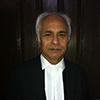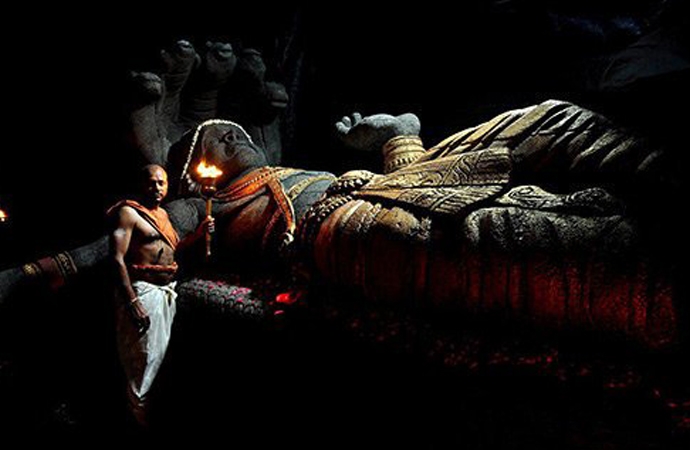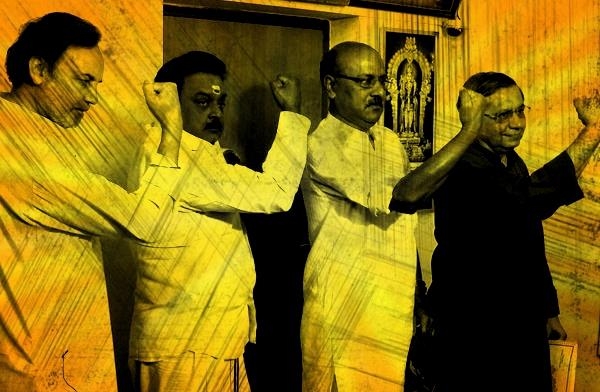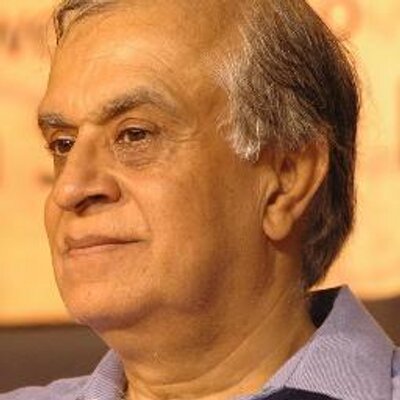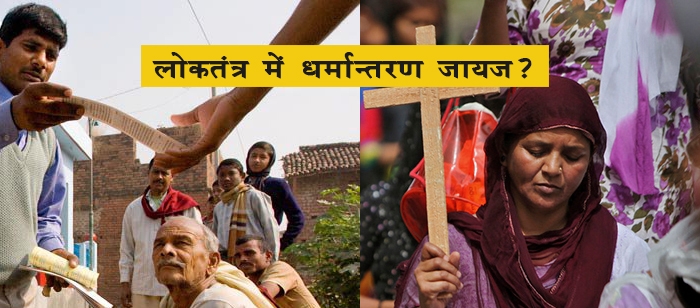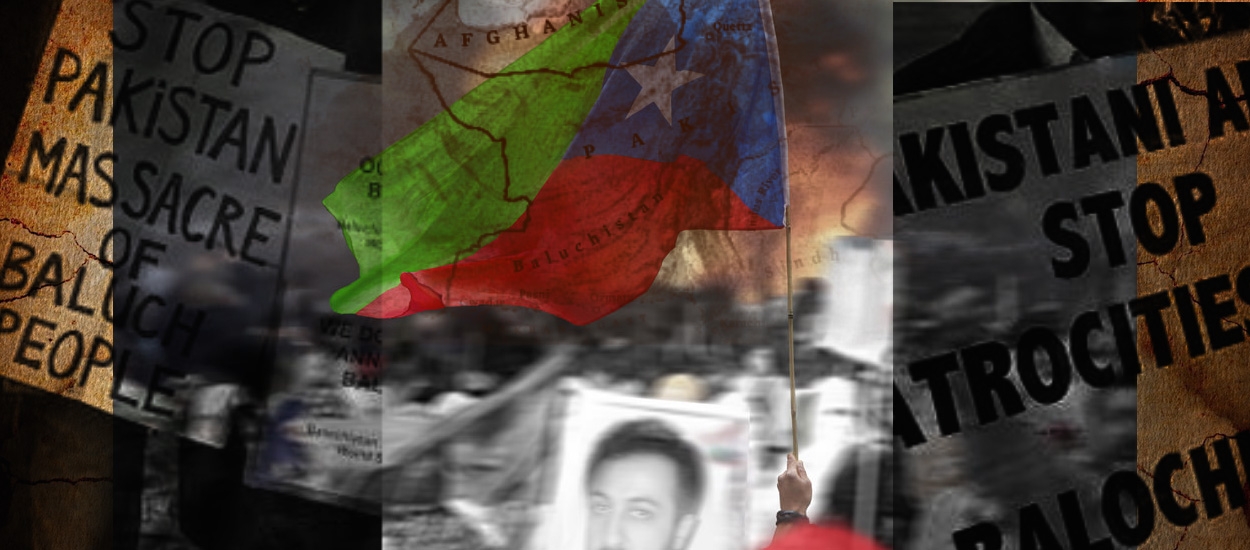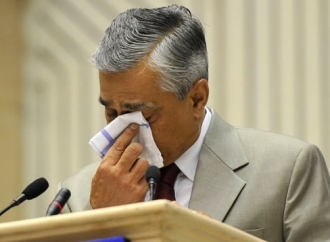
Chief justice of India’s lament over fewer judges is understandable; but is it the real cause of the endemic disease afflicting the Justice Delivery System in the country?
If at all, it is the most insignificant cause of the disease. In mature democracies around the world, complaint to sentencing takes around six months. Fewer judges can push this time to 8 months or 9 months; it certainly doesn’t explain the fact that one can’t expect a result in even 6 years. And as the Prime Minister suggested, judges working a little extra time can remedy the effects of shortage of judges.
Delays in justice and failure and/or subversion of justice have little to do with lack of judges and everything to do with the way judges function. Inefficiency, callousness and corruption are the way of life in so far as Justice Delivery System is concerned. There is an unholy coalition of judiciary, advocates and the investigating agencies taking the society to ransom. The trio has a vested interest in delaying justice and thereby perpetuating injustice. Needless to say, there are good people in all the three wings of Justice Delivery System, but they are too few to stem the rot.
Hon'ble Supreme Court lamented in Achint Navinbhai Patel Alias ... vs State Of Gujarat [AIR 2003 SC 2172, 2002 (142) ELT 516 SC]
"It is common knowledge that currently in our country criminal Courts excel in slow motion. The procedure is dilatory, the dockets are heavy, even the service of process is delayed and, still more exasperating, there are appeals upon appeals and revisions and supervisory jurisdictions, baffling and baulking speedy termination of prosecutions, not to speak of the contributions to delay by the administration itself by neglect of the basic necessaries of the judicial process.
“The slow motion becomes much slower motion when politically powerful or rich and influential persons figure as accused. FIRs are quashed. Charges are quashed. Interlocutory orders are interfered with. At every step, there will be revisions and applications for quashing and writ petitions. In short, no progress is ever allowed to be made. And if ever the case reaches the stage of trial after all these interruptions, the time would have taken its own toll: the witnesses are won over; evidence disappears; the prosecution loses interest - the result is an all too familiar one. We are sad to say that repeated admonitions of this Court have not deterred superior Courts from interfering at initial or interlocutory stages of criminal cases. Such interference should be only in exceptional cases where the interests of justice demand it; it cannot be a matter of course.
“This is yet another opportunity to inform the trial Courts that despite the procedural trammels and vocational constraints we have reached a stage when no effort shall be spared to speed up trials in the criminal Courts. It causes anguish to us that in spite of the exhortations made by this Court and a few High Courts, time and again, some of the trial Courts exhibit stark in-sensitivity to the need for swift action, even in cases where the accused are languishing in prisons for long years as under-trials only on account of the slackness, if not inertia, in accelerating the process during trial stage."
The result is, in the words of the Law Commission, “It is the duty of the State to protect fundamental rights of the citizens as well as the right to property. The State has constituted the Criminal Justice System to protect the rights of the innocent and punish the guilty. The system devised more than a century back, has become ineffective; a large number of guilty go unpunished in a large number of cases; the system takes years to bring the guilty to justice; and has ceased to deter criminals. Crime is increasing rapidly everyday and types of crimes are proliferating. The citizens live in constant fear.”
Here is what the judges, as few or many as they are, can do and are not doing:
Not allowing adjournments on flimsy grounds:
Every litigant, when he or she goes to attend court, is aware that there is less than 10 per cent chance of the proceedings taking place. Again I will quote from a judgement of Hon'ble Supreme Court ‘Ramrameshwari Devi and Ors. Versus Nirmala Devi and Ors. [CIVIL APPEAL NOS. 4912-4913 OF 2011]’:
It is abundantly clear from the facts and circumstances of this case that the appellants have seriously created obstacles at every stage during the course of trial and virtually prevented the court from proceeding with the suit. This is a typical example of how an ordinary suit moves in our courts.
Some cantankerous and unscrupulous litigants on one ground or the other do not permit the courts to proceed further in the matter.
The learned Amicus Curiae has taken great pains in giving details of how the case has proceeded in the trial court by reproducing the entire court orders of 1992 suit. In order to properly comprehend the functioning of the trial courts, while dealing with civil cases, we deem it appropriate to reproduce the order sheets of 1992 suit. This is a typical example of how a usual civil trial proceeds in our courts. The credibility of entire judiciary is at stake unless effective remedial steps are taken without further loss of time. Though original litigation and the appeal which commenced from 1977 but in order to avoid expanding the scope of these appeals, we are dealing only with the second litigation which commenced in 1992. The order sheets of the suit of 1992 are reproduced as under :-
Proceedings of Suit - 1992
17.01.1992 Summons to Defendants on plaintiff and RC
28.02.1992 Fresh summons to Defendants 1 & 2. Defendant No. 3 refused service. Proceeded ex-parte
30.03.1992 Time sought to file Written Statement for all the Defendants. Allowed.
20.04.1992 Written Statement filed. Fixed on 30.04.1992 for replication, admission/denial and framing of issues.
01.05.1992 Plaintiff sought time to file replication.
11.05.1992 Replication filed. Adjourned for admission/ denial on joint request.
26.05.1992 No document for admission/denial. Issues framed. Fixed for arguments on 17.07.1992.
17.07.1992 Arguments heard on preliminary issue.
20.07.1992 Suit stayed. Plaintiff granted liberty to make application for revival after disposal of RFA (OS) 4/82.
01.06.2001 File sent to District Judge for transferring the case to proper court.
04.06.2001 District Judge marked to case to the court of Shri Naipal Singh, Additional District Judge.
02.07.2001 Presiding Officer is on vacation leave. Fixed for 03.07.2001.
03.07.2001 Miscellaneous application notice issued to the respondent. Main Suit 47/92 summoned.
23.08.2001 Suit file be summoned. Notice of application to Defendant on PF & RC.
16.10.2001 Copy of application given to all the Defendants. Adjourned for reply to application and further proceedings.
05.12.2001 Suit has to proceed for the decision on merits.
28.02.2002 Application under Order 6 Rule 17 moved by Defendant for amendment of Written Statement. Adjourned for reply and arguments on the application.
16.04.2002 As the value of the suit is below 3 lakhs, the suit transferred to the court of Civil Judge.
23.04.2002 Reply to application filed. Summons to Defendants other than Defendant No. 3.
21.08.2002 Counsel for the parties not present.
28.11.2002 Presiding Officer on leave.
07.12.2002 At joint request, adjourned. Last opportunity.
22.09.2003 None present. Adjourned for arguments on Order 6 Rule 17. File transferred to the court of Shri Prashant Kumar, Civil Judge.
12.11.2003 Son of the Plaintiff stated that the Plaintiff has expired. Adjourned.
06.12.2003 Presiding Officer not available.
16.01.2004 Copy of application under Order 22 Rule 3 supplied. As requested, adjourned.
16.02.2004 Reply not filed. Counsel for the Defendant seeks time to file reply.
01.03.2004 Reply filed. Counsel for the Defendant objected that the addresses of Legal Representatives are not correct.
24.03.2004 Application Order 22 Rule 3 is allowed. Right to sue survives. Order 6 Rule 17 pending for disposal.
27.04.2004 Arguments heard.
22.05.2004 Plaintiff wants to file written submissions with regard to clarification. Allowed.
03.07.2004 None for Defendants. Written submissions filed by Plaintiff.
28.7.2004 Present none. Order 6 Rule 17 dismissed. 02.09.2004 None for Defendants. Fixed for PE to 06.10.2004
28.09.2004 Defendant moved application Order 14 Rule 5. Notice issued.
06.10.2004 Issues reframed. Defendant sought time to cross-examine PW.
22.11.2004 PW present. Defendant prayed for adjournment. Defendant moved application for transfer of the case. Last opportunity for crossexamination.
21.12.2004 PW present. Previous cost not pressed for. PW sought time for obtaining copies of documents.
10.02.2005 PW cross-examined. PE closed.
15.03.2005 No DW present
19.04.2005 Affidavit of DW filed. However DW stated that he is not feeling well. Adjourned.
28.05.2004 Defendant stated that he does not want to lead evidence. DE closed. Fixed for final arguments.
15.07.2005 Stay by the High Court in CM (Main) 1490/2005.
18.07.2005 Counsel for the Defendant states that the High Court has stayed the matter. Directed to file the copy of the order.
25.08.2005 No copy of the order is filed.
29.10.2005 Matter under stay by High Court.
30.01.2006 Fresh suit received by transfer. Adjourned for proper orders.
02.05.2006 Notice to Defendants.
31.05.2006 Counsel for the Defendants served but none appeared. Adjourned for final arguments.
21.08.2006 File not traceable. Adjourned.
09.12.2006 Present: Counsel for the plaintiff. Adjourned for final arguments.
19.02.2007 Counsel for the plaintiff. Proceedings stayed by the High Court.
21.08.2007 Counsel for the Plaintiff. Matter under stay by the High Court.
17.12.2007 CM (Main) 1490/2005 dismissed by the High Court. Stay vacated.
10.1.2008 Counsel for the Plaintiff. None for the Defendant. Adjourned.
12.02.2008 Defendant filed application O18 R17A. Copy supplied. Adjourned for reply and arguments.
30.04.2008 Reply filed by the Plaintiff. Application allowed to cost of Rs.7,000/-, out of which Rs.1,000/- to be deposited in Legal Aid. Adjourned for DE.
31.07.2008 Defendant sought adjournment on the ground that witness is not feeling well.
29.9.2008 Plaintiff moved application Order 6 Rule 17. Copy supplied.
23.12.2008 Reply filed. Come up for arguments on the application.
21.5.2009 Part arguments heard.
22.07.2009 Plaintiff does not press for the application. Dismissed. To come up for DE.
05.10.2009 Defendants witness not present. Application for exemption allowed. Affidavit already filed.
23.10.2009 Application under Order 7 Rule 1 CPC filed. Dismissed. Affidavit of Kishan Gopal tendered as DW1, and he is cross-examined and discharged. No other witness. DE closed.
11.01.2010 Presiding Officer on leave.
23.03.2010 Defendant seeks adjournment on the ground that main counsel not available.
3.5.2010 Adjournment sought on behalf of the parties.
26.5.2010 File not traceable.
9.7.2010 Application under Section 151 CPC for treating No. 4 as preliminary issue. Dismissed with cost of Rs.2,000/
9.8.2010 Application for adjournment filed.
27.9.2010 Presiding Officer on leave.
23.10.2010 For final arguments.
18.12.2010 For final arguments.
22.1.2011 For final arguments.
5.2.2011 For final arguments.
26.2.2011 Sought adjournment on the ground that the matter regarding cost is pending in Hon’ble Supreme Court.
Surely, remedy for frivolous adjournments can be found without increasing the strength of judges.
Judicial, legislative, police reforms:
Govt. of India, Ministry of Home Affairs constituted the Committee on reforms of Criminal Justice System to make a comprehensive examination of all the functionaries of the Criminal Justice System, the fundamental principles and the relevant laws. The Committee, having given its utmost consideration to the grave problems facing the country made its recommendations in its final report 13 years ago in March 2003. 158 specific recommendations were made. But what happened to those recommendations. Neither the judiciary nor the successive governments have any time to even look at them.
Technological upgradation:
Can the Hon'ble Chief Justice of India explain why the bulk of lower judiciary is still working in a century old fashion? If the working of judiciary is computerised, not only the efficiency and transparency improve radically, it will be very convenient for the beneficiaries of the system for whom nobody cares today.
Judicial accountability:
There has to be a system of judicial accountability both in terms of adhering to a time schedule and complaints of corruption, which can no longer be wished away, if we have to instil any sense of confidence in the minds of people of India.
End arbitrariness in the matter of granting bail:
This is a matter exclusively to be dealt with by the Supreme Court. While crime to sentence takes 5-6 months in other parts of the world, it takes decades in India. And who decides in the meanwhile whether a citizen will enjoy liberty or be in jail? First the thoroughly corrupt police. They have all discretion whether to charge a person and whether to arrest him or her. Next it is the whims and fancies of judges exercising arbitrary bail jurisdiction. Despite the oft repeated concern for individual liberty and enunciation of the principle – bail not jail, bail is a privilege that is being sold at a price only the rich and influential can pay. I have personal knowledge of a case in which the police were hobnobbing with the real culprit and harassing innocent people who were denied anticipatory bail without reason. The Supreme Court must lay down principles, reducing the discretion in granting bail to the minimum and come down heavily on judges refusing bail without due justification.
What needs to be done is already known. Several reports on JUSTICE SYSTEM REFORMS are gathering dust in the Archives of the Government. Only thing needed is action and act we must lest the system collapses completely.
Recently, rejecting the Government’s prayer for setting up special fast-track courts for MPs, Hon'ble Supreme Court said, “This fast-tracking of a few categories is not helping to speed up criminal justice system as the manpower in trial courts and infrastructure is woefully inadequate.”
The SC asked the government to come out with concrete proposal within four weeks, in consultation with states, on how to fast-track entire criminal justice system and not appointing a few special courts for some sensitive cases. The SC said good governance means expeditious criminal justice delivery system. "Pendency of criminal cases for 10 years does not augur well for democracy," the SC bench said.
One hopes the Supreme Court and the government will work together to set the system right rather than searching alibis.

